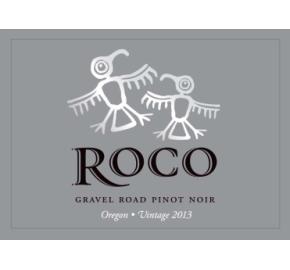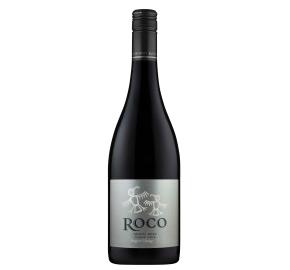This product is no longer available. Please choose another vintage above.
Roco Wine - Gravel Road - Pinot Noir 2015
- Producer Roco Wines
- Blend 100% Pinot Noir
- Country USA
- Region Oregon
- Appellation Willamette Valley
- UPC 8 99166 00200 9
2015 Vintage notes
This growing season was one of those warm, sunny experiences that we all desire in the often challenging Willamette Valley. Other than a spot of high temperatures, nearly the entirety of August punched in at the 80’s with clear blue skies.Virtually no precipitation occurred all summer long. On August 28-30th we received a refreshing 1.3 inches of rain, which perked up the vines, the acid bounced back and fruit flavors became lively once again. We were able to pick at optimum ripeness beginning around September 4th through September 23rd.
About Gravel Road Pinot Noir
The hills in the Willamette Valley are punctuated by gravel roads, which lead to the regions finest vineyards. ROCO’s Gravel Road Pinot Noir is a blend of several of these distinctive vineyards including the Soles’ own Wits’ End Vineyard in the Chehalem Mountains AVA. An outstanding value, the Gravel Road Pinot Noir flavor profile surpasses many other wineries flagship Pinot Noirs. The old world style offers bold flavor with balance and grace to pair well with nearly any food.
Technical notes
VARIETAL: 100% Pinot Noir
APPELLATION: Willamette Valley AVA
VINEYARDS: Wits’ End, Marsh Estate, Knudsen,
Russell-Grooter and Hopewell Vineyards
SOILS: Sedimentary & Basalt
CLONES: Pommard, Dijon and Wädenswil
OAK: 0% New French
ALCOHOL: 14%
APPELLATION: Willamette Valley AVA
VINEYARDS: Wits’ End, Marsh Estate, Knudsen,
Russell-Grooter and Hopewell Vineyards
SOILS: Sedimentary & Basalt
CLONES: Pommard, Dijon and Wädenswil
OAK: 0% New French
ALCOHOL: 14%
Winemaker's tasting notes
A whopping, great big bing cherry upon entry to the mouth, which then melds nicely into the mid-palate with hints of orange peel. Yet it maintains that cool climate acidity backbone with notes of pipe tobacco, and begs you to pour another glass.
Winemaking process
ROCO Pinot Noir is handpicked and then chilled overnight to 38°F in our large cold room. The chilled bunches are gently de-stalked and the whole berries fall into small 1.6 ton open fermenters. The berries soak for ten days before beginning ferment with our proprietary, house-cultured, indigenous wine yeast. Soaking allows gentle extraction of color and flavor from the berry skin, and not the bitter-tasting seeds. The fermentations are hand punched twice a day to mix skins and fermenting juices. Ferments are allowed to reach about 28°C. A post-fermentation soak occurs until the wine is just right for removing from the skins and seeds. At that time the ferment is gently pressed in our modern tank press. The young wine is then sent to barrel for malolactic fermentation to soften the acidity and to add further complexity, then racked once to new, one, two and three-year-old, tight-grained, French oak barrels. The wines are aged in barrel for 18 or more months before bottling.


